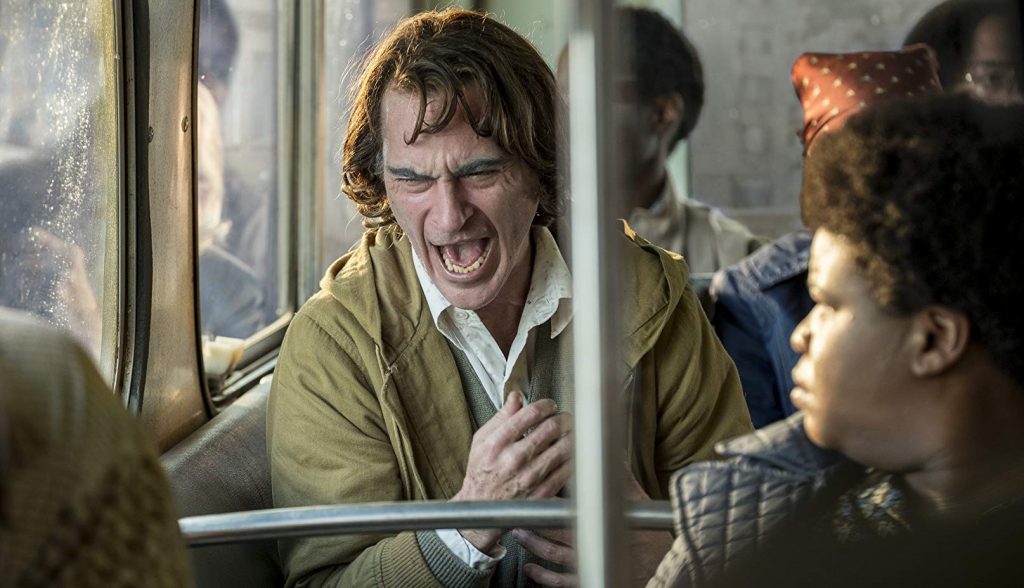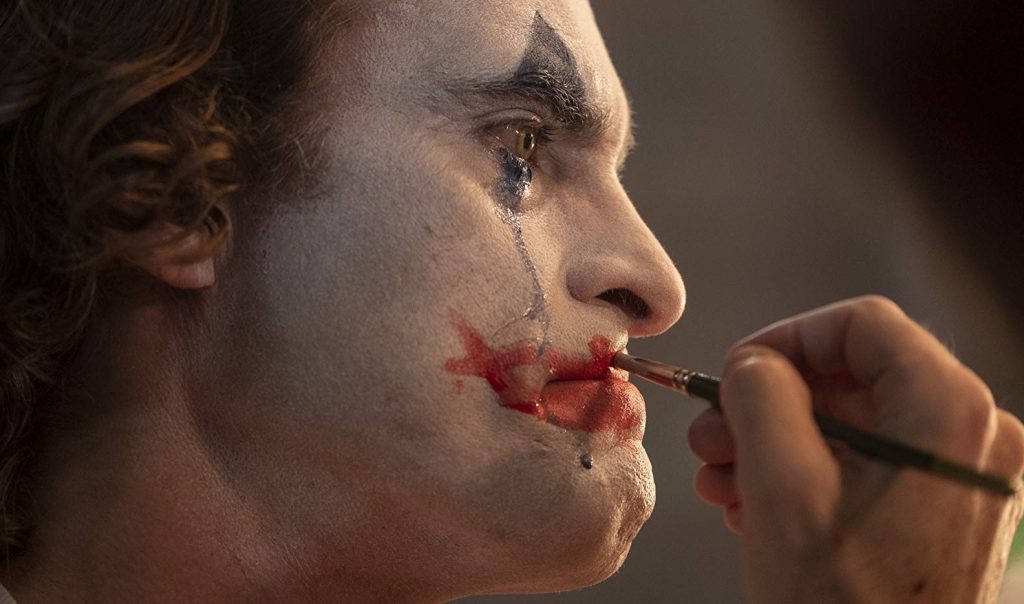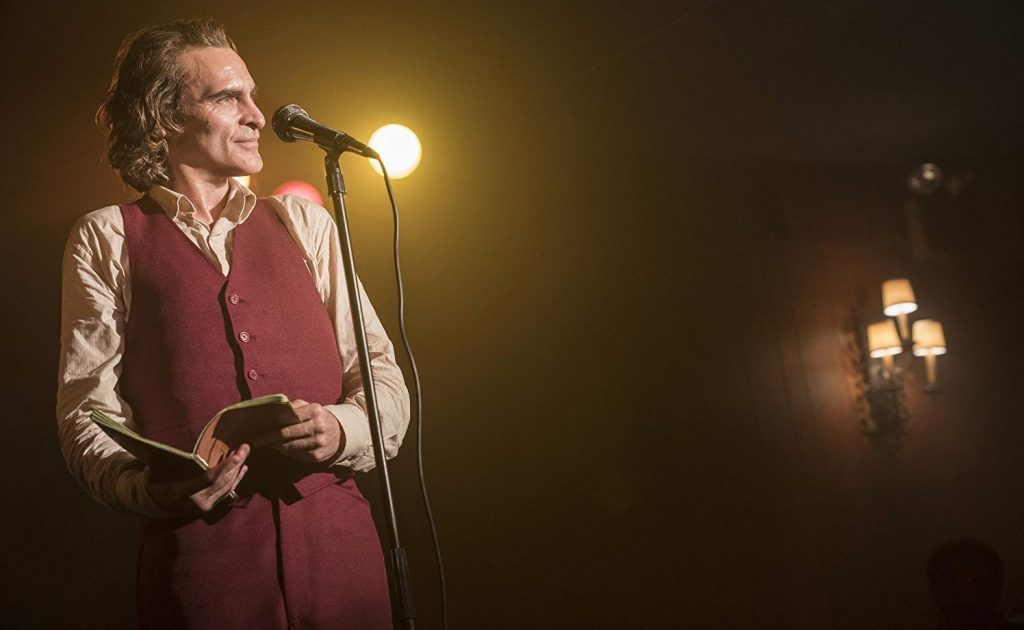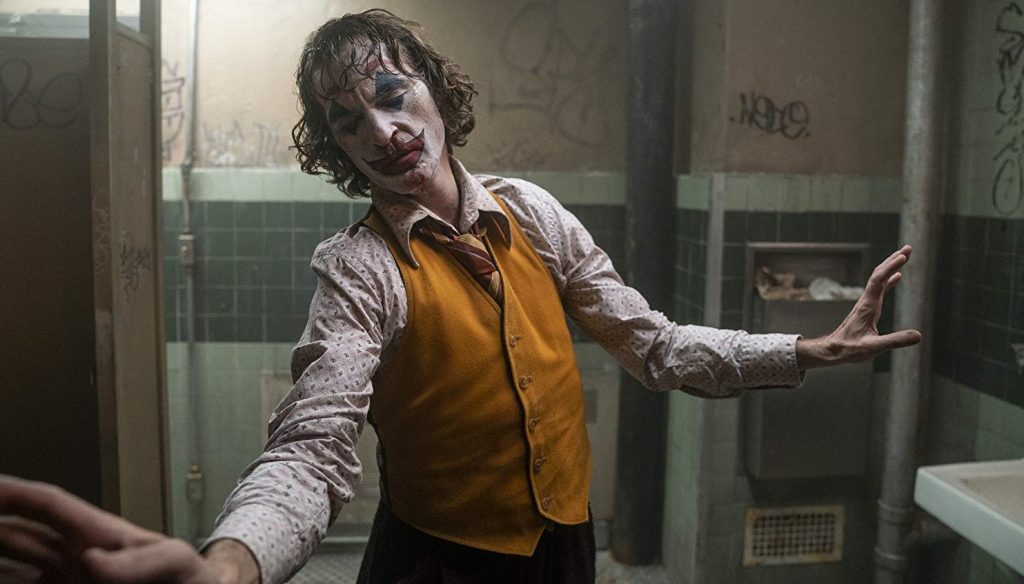
The latest comic-book adaptation to hit cinema screens is at least an attempt to try something a bit different from the current formula. Based on the famous villain from the Batman comic book, Joker is a gritty and violent take on the figure that does its best to explain the origins of the character, his motivations and the reasons behind his psychotic snap. It’s an uneven effort that doesn’t always hit the mark, but is salvaged by an admittedly incredible lead performance.

This film is not for the kids, presenting Gotham City as crime-ridden and on the verge of mass riots. Arthur Fleck (Joaquin Phoenix) is a struggling clown who lives with his mother (Frances Conroy) in a run-down tenement. He dreams of being a successful stand-up comedian on a TV show hosted by Murray Franklin (Robert De Niro). Unfortunately, a neurological condition causes him to laugh uncontrollably and often at inappropriate times. He also suffers from depression, feeling completely invisible to others, taking several medications to keep him balanced. After being beaten on the street, losing his job as well as social assistance needed to pay for his medication, Arthur finally lashes out and murders his next gang of tormentors. The slaying makes the press and suddenly Arthur begins to feel, in a strange way, recognized by the public. As the police close in and new family history is discovered, Arthur’s newfound sense of purpose provokes him into planning even more drastic acts.

Phoenix appears to be going all-in on his depiction of Arthur, not only immersing himself in the part, but physically losing a great deal of weight for the role. He looks emaciated, his body almost looking like that of a contortionist. This is a character who commits terrible crimes, but the performer does manage to make Arthur into a meek and tortured soul who, when he isn’t brutally killing anyone, does come across as sympathetic. After he turns violent, he’s equally threatening. A scene involving a couple of coworkers visiting his apartment grows ever more-tension filled as it progresses thanks to the character’s unpredictable movements, mannerisms and thoughts. His transformation and discovery of a new purpose in life, as messed up as it may be, is dynamic to watch.

It’s a good thing that the performer is so strong, as there are some issues with the story itself. A twist that occurs late in the film should come as a surprise to absolutely no one; far too much information is given by the editing team that makes what is occurring obvious from the outset. The climax is also a bit of a jumble as the lead rather bluntly gives a speech that feels a bit too on-the-nose. It also comes across as difficult to believe that a man in his unhinged condition would be granted access and allowed a specific item while on a television set. One just has to accept that Gotham City’s studio shows must have by far the most careless and negligent security imaginable.

Alas, these kinds of problems do take one out of the picture here and there, ultimately keeping it from reaching its full potential. However, Phoenix is completely committed and commands the screen whenever he appears. Given the story issues, this film could have been a complete disaster were it not for his stellar work. The movie also tries to make a point and suggest that ignoring the sick and helpless can have unintended and very violent consequences, even if it’s delivered too bluntly and without much nuance. Much like the plot twist that isn’t surprising, too much information is delivered in too obvious a manner.
As such, the end results are a mixed bag. This is a thrilling and well-performed character to watch onscreen, but one wishes a little more care and attention was taken to putting the story together and delivering the plot points in a surprising way. Joker features a great performance, but the movie itself could have done with some extra tinkering in the editing room.


